Phonics practice Normal Worksheets for Ages 3-6
13 filtered results
-
From - To
Enhance your child's reading journey with our Phonics Practice Normal Worksheets, specially crafted for ages 3-6. These engaging, printable worksheets from Kids Academy help young learners master essential phonics skills, building a strong foundation for reading and writing. Our fun and interactive activities cover letter recognition, sound matching, and word formation, designed to make learning enjoyable and effective. With colorful illustrations and easy-to-follow directions, our worksheets keep children excited and motivated. Support your child's literacy development and prepare them for school success with our expertly designed phonics practice resources. Download now and watch them thrive!
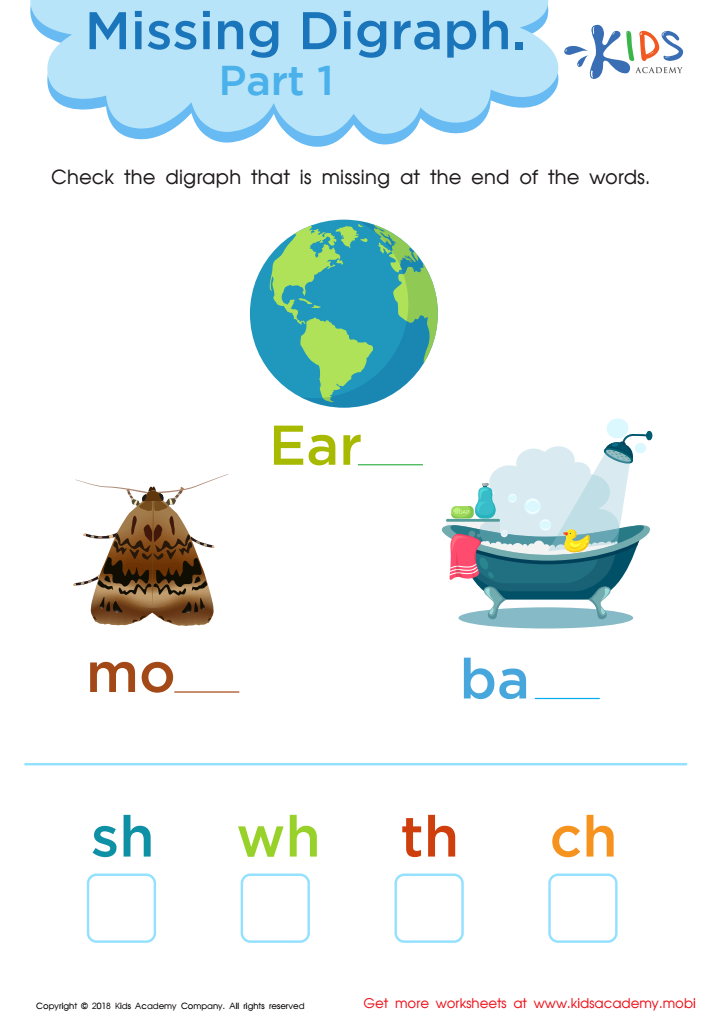

Missing Digraph: Part 1 Worksheet
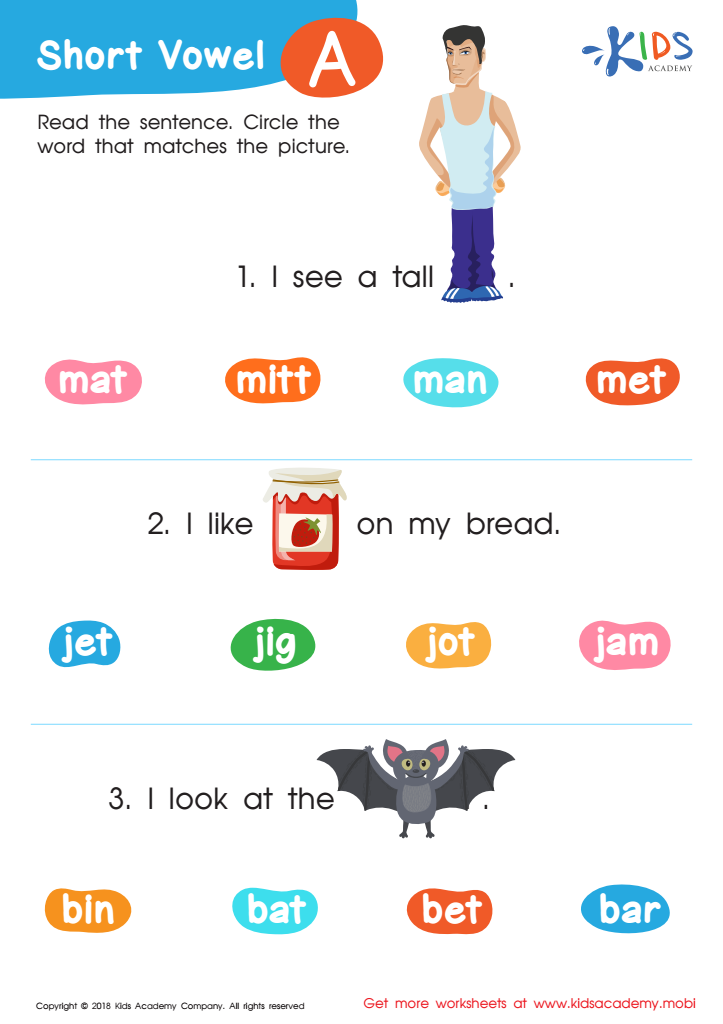

Short Vowel /a/ Worksheet


Letter A Coloring Sheet
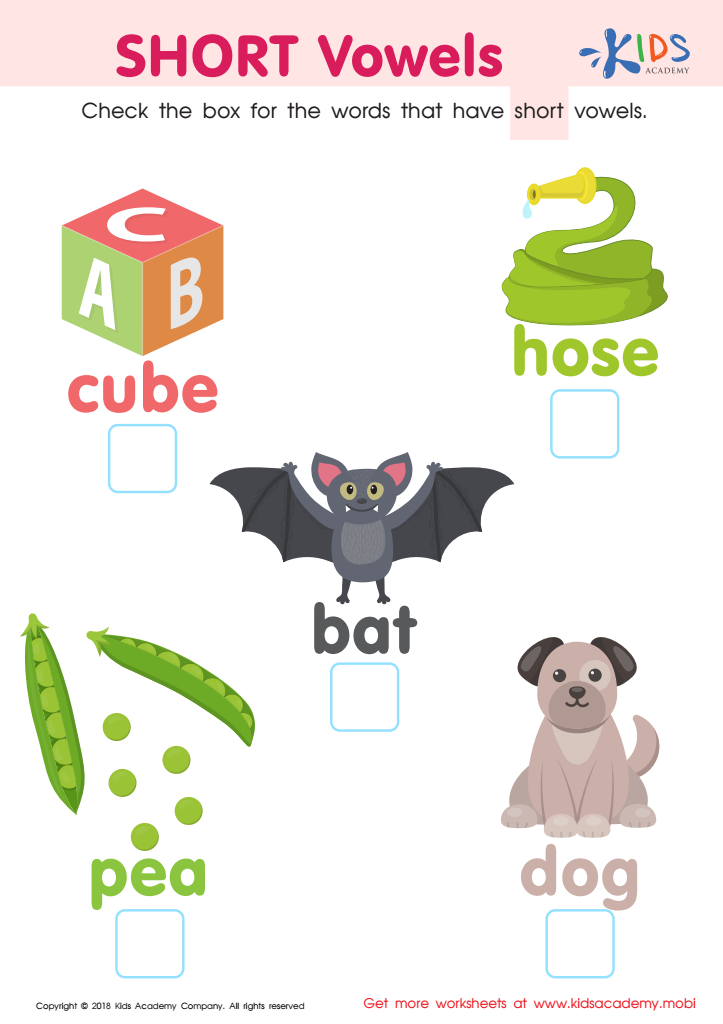

short vowels Worksheet
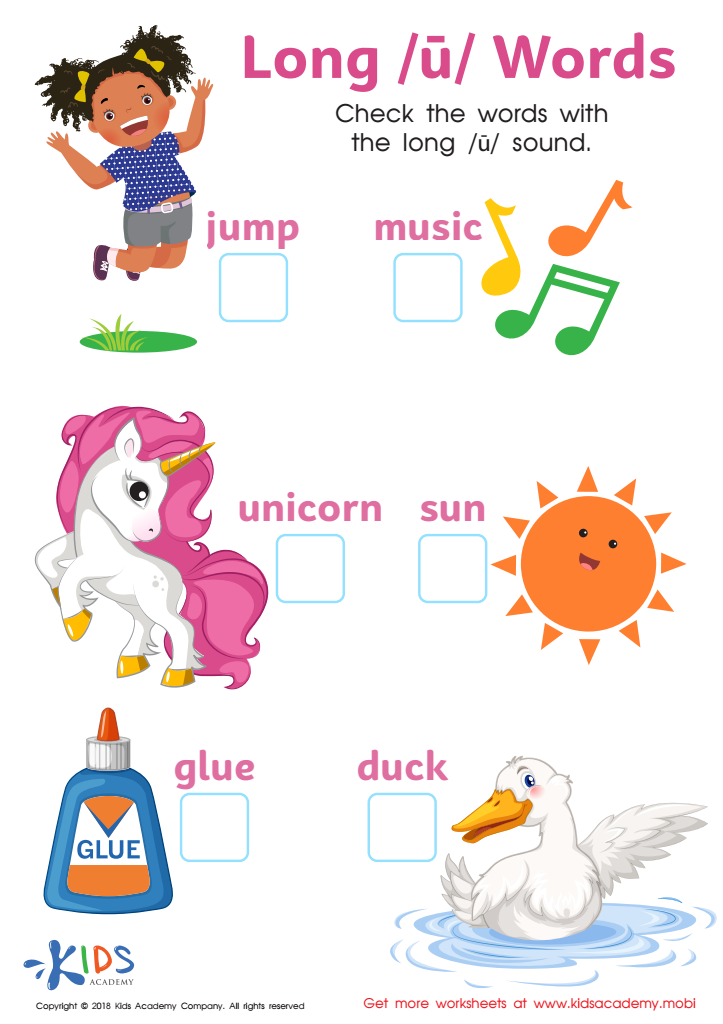

Long U Words Reading Worksheet


Twin Onset Worksheet
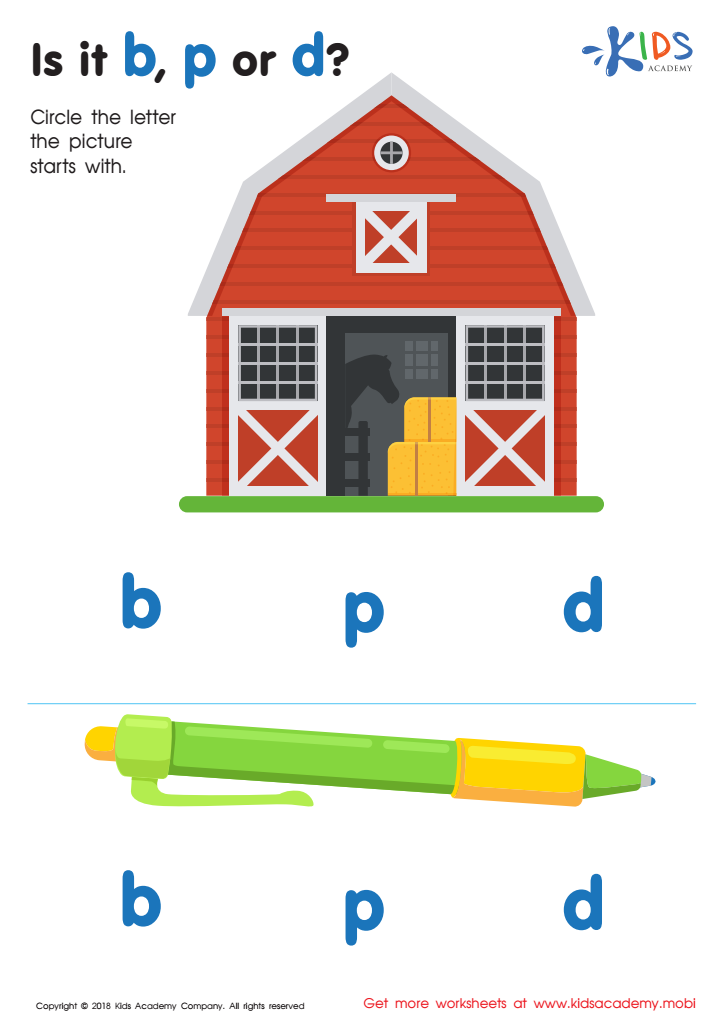

Is it b, p or d? Worksheet


Short Vowel Eggs Worksheet
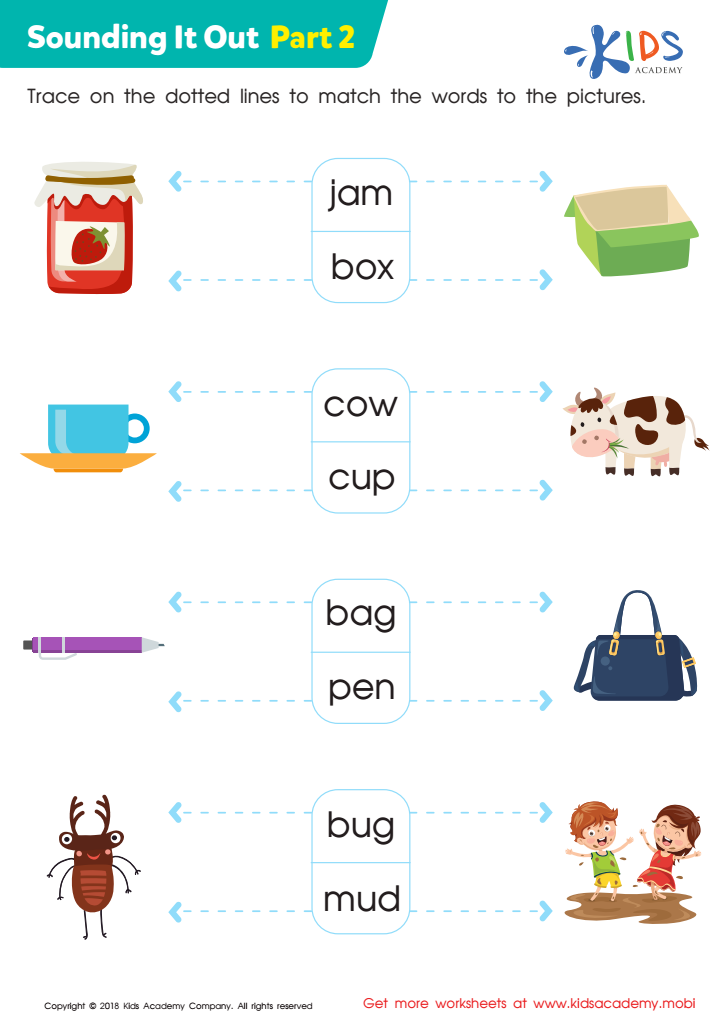

Sounding it Out: Part 2 Worksheet


Words with sound p Reading Worksheet


Words with sound f Reading Worksheet
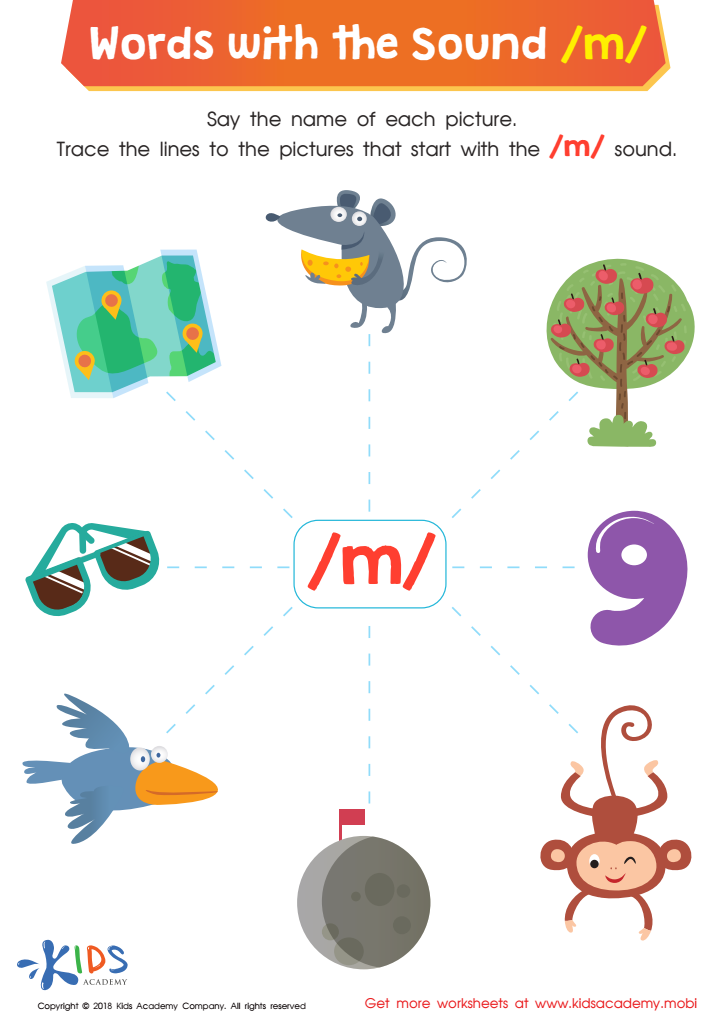

Words with Sound M Reading Worksheet
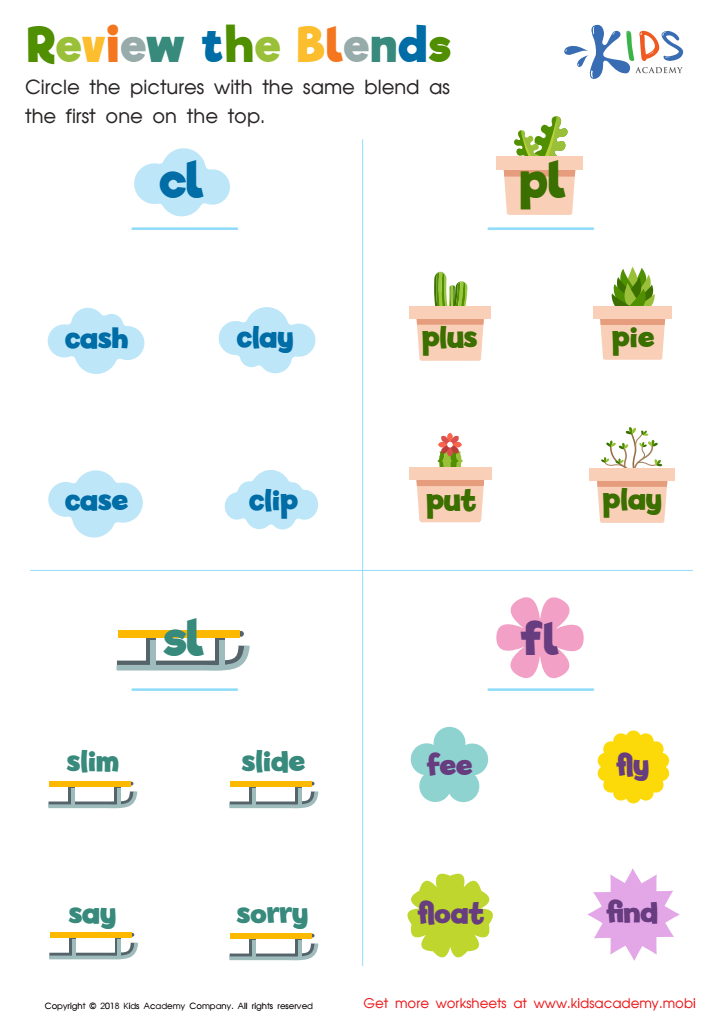

Review the Blends Worksheet
Phonics practice is crucial for children aged 3-6 as it serves as the foundation for early literacy and reading success. Phonics involves teaching the relationship between sounds and their corresponding letters or groups of letters. Mastering these connections aids young learners in decoding new words, significantly improving their reading ability and fluency.
At this formative stage, children's brains are highly receptive to language acquisition. With consistent phonics practice, they become skilled at recognizing and blending sounds, which promotes smoother transition to more complex reading tasks. This early literacy competency boosts their confidence and fosters a love for reading that can last a lifetime.
Parents and teachers play a critical role in facilitating phonics education. By creating a supportive and engaging learning environment, they help children build strong literacy foundations. Activities such as reading aloud, interactive games, and phonics-based books can make learning enjoyable and effective.
Moreover, phonics practice also benefits vocabulary development, comprehension skills, and overall academic performance. By investing time and effort in early phonics education, parents and teachers set children on the path to academic success and equip them with essential tools for effective communication. Thus, incorporating phonics into early childhood education is an investment in a child's future.
 Assign to My Students
Assign to My Students
















